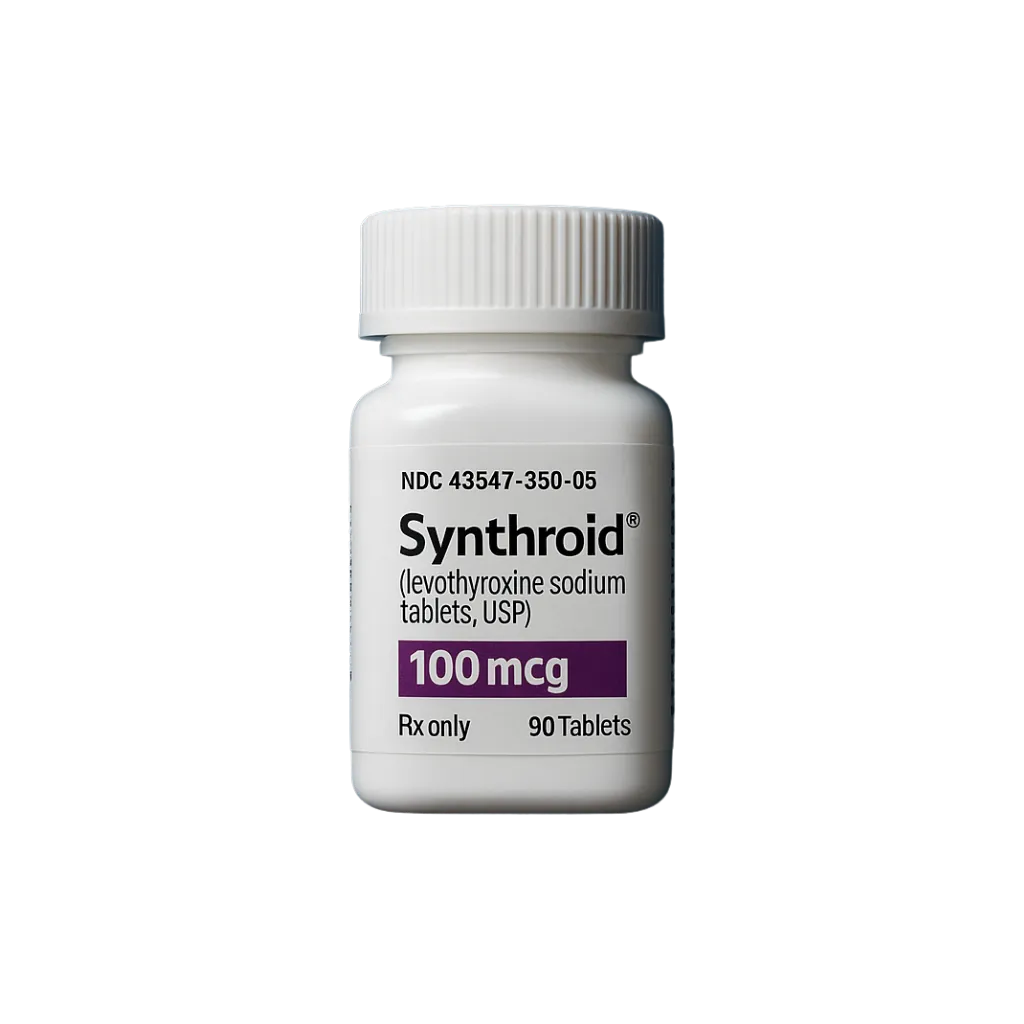How many times a day do you take Erfa Thyroid?

ERFA Thyroid is natural desiccated thyroid (NDT) containing T4 and T3 from pig thyroid glands. It is used as hormone replacement in hypothyroidism, goiter/nodule management, and thyroid cancer suppression. ERFA Thyroid is taken once daily, on an empty stomach, 30–60 minutes before your first meal with a full glass of water, at the same time each day.
What is the usual dose of ERFA Thyroid?
Dosing is individualized. Typical adult dosing starts at 30 mg once daily, then increased by 15 mg every 2–3 weeks based on TSH, T4, and T3 levels. Most maintenance doses range from 60 mg to 120 mg daily. Patients with long‑term myxedema or cardiovascular disease often start at 15 mg daily. Pediatric dosing is weight‑based.
For thyroid suppression therapy (e.g., nodules or cancer), dose is weight‑based for 7–10 days.
ERFA Thyroid is not indicated for weight loss or obesity treatment.
What are the side effects of ERFA Thyroid?
- Nausea, vomiting, headache
- Irregular heartbeat, chest pain, palpitations
- Hair loss, tremors, muscle weakness
- Anxiety, irritability
- Diarrhea, weight changes
- Trouble sleeping, rash, menstrual irregularities
Rare serious effects—seek immediate help if you experience:
Shop Medications
- Severe allergic reaction (hives, swelling, breathing difficulty)
- Heart attack symptoms (chest pain, dizziness, sweating)
- Heart failure signs (shortness of breath, swelling)
Who should not take ERFA Thyroid?
Contraindications include:
- Untreated adrenal insufficiency
- Untreated thyrotoxicosis
- Known allergy to active or inactive ingredients
Use with caution if you have:
- Heart disease or high blood pressure
- Diabetes
- Malabsorption syndromes
- Adrenal or pituitary dysfunction
- Pregnancy or breastfeeding (dosing adjustments may be needed)
- Advanced age (monitor for angina, arrhythmias)
What medications cause drug interactions with ERFA Thyroid?
Take interacting meds at least 4 hours apart, or monitor thyroid levels closely:
- Antacids (calcium, magnesium)
- Proton pump inhibitors (omeprazole, lansoprazole)
- Iron, calcium, fiber supplements
- Diabetic drugs (insulin, oral agents)
- SSRIs (sertraline, escitalopram) and TCAs (amitriptyline, doxepin)
- Hormonal contraceptives and HRT
- Antibiotics (ciprofloxacin, rifampin)
- Cholestyramine, colestipol
- Warfarin and other anticoagulants
- Lithium
Foods/beverages affecting absorption: coffee, soy, grapefruit juice, high‑fiber or high‑calcium foods.







